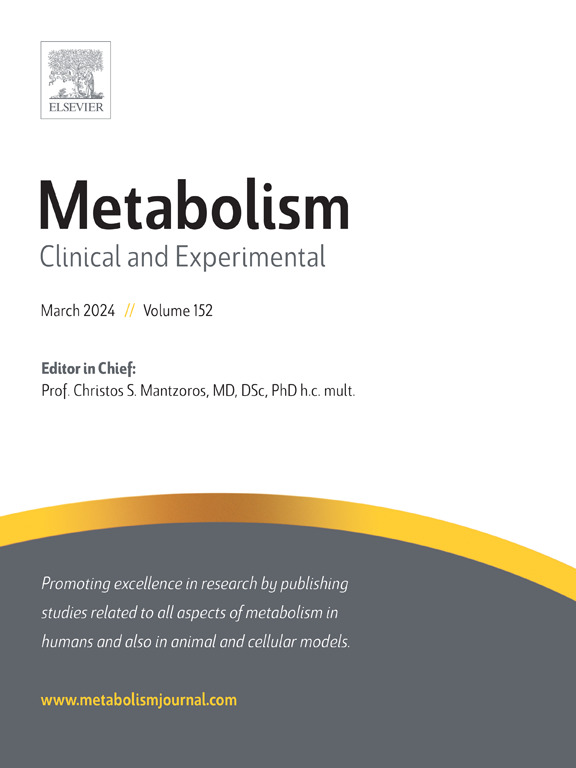Anti-sarcopenic effects of active vitamin D through modulation of anabolic and catabolic signaling pathways in human skeletal muscle: A randomized controlled trial
IF 10.8
1区 医学
Q1 ENDOCRINOLOGY & METABOLISM
引用次数: 0
Abstract
Background
The muscle-building and strengthening effects of the active form of vitamin D in humans remain unclear.
Methods
In this ancillary study of the Diabetes Prevention with active Vitamin D trial, we examined clinical and experimental aspects to investigate the effects and mechanisms of eldecalcitol, an active form of vitamin D, in preventing sarcopenia. We examined changes in molecules involved in muscle synthesis and degradation pathways in muscle samples from 32 participants before and after 1 year of eldecalcitol or placebo treatment. The protein levels of molecules involved in muscle synthesis and degradation pathways were examined using western blotting. Additionally, the skeletal muscle and body fat volumes were measured using bioelectrical impedance analysis with a body composition analyzer.
Results
We found that eldecalcitol treatment for 1 year resulted in higher phosphorylation levels of mTOR and FOXO1 signaling pathways, which are associated with increased muscle mass and strength than those with placebo treatment. Body composition measurements at 1 year showed that the eldecalcitol group had significantly higher skeletal muscle mass (1.9 % vs. −3.4 %, p = 3.26E−9) and muscle strength (4.1 % vs. −0.7 %, p = 2.57E−17), and lower fat mass (−3.2 % vs. 1.8 %, p = 1.73E−12) than those in the placebo group.
Conclusion
This study suggested that the active form of vitamin D regulates the protein synthesis and degradation pathways in human skeletal muscle and may help prevent sarcopenia. This study was registered at UMIN clinical trials registry, UMIN 000005394.

求助全文
约1分钟内获得全文
求助全文
来源期刊

Metabolism: clinical and experimental
医学-内分泌学与代谢
CiteScore
18.90
自引率
3.10%
发文量
310
审稿时长
16 days
期刊介绍:
Metabolism upholds research excellence by disseminating high-quality original research, reviews, editorials, and commentaries covering all facets of human metabolism.
Consideration for publication in Metabolism extends to studies in humans, animal, and cellular models, with a particular emphasis on work demonstrating strong translational potential.
The journal addresses a range of topics, including:
- Energy Expenditure and Obesity
- Metabolic Syndrome, Prediabetes, and Diabetes
- Nutrition, Exercise, and the Environment
- Genetics and Genomics, Proteomics, and Metabolomics
- Carbohydrate, Lipid, and Protein Metabolism
- Endocrinology and Hypertension
- Mineral and Bone Metabolism
- Cardiovascular Diseases and Malignancies
- Inflammation in metabolism and immunometabolism
 求助内容:
求助内容: 应助结果提醒方式:
应助结果提醒方式:


